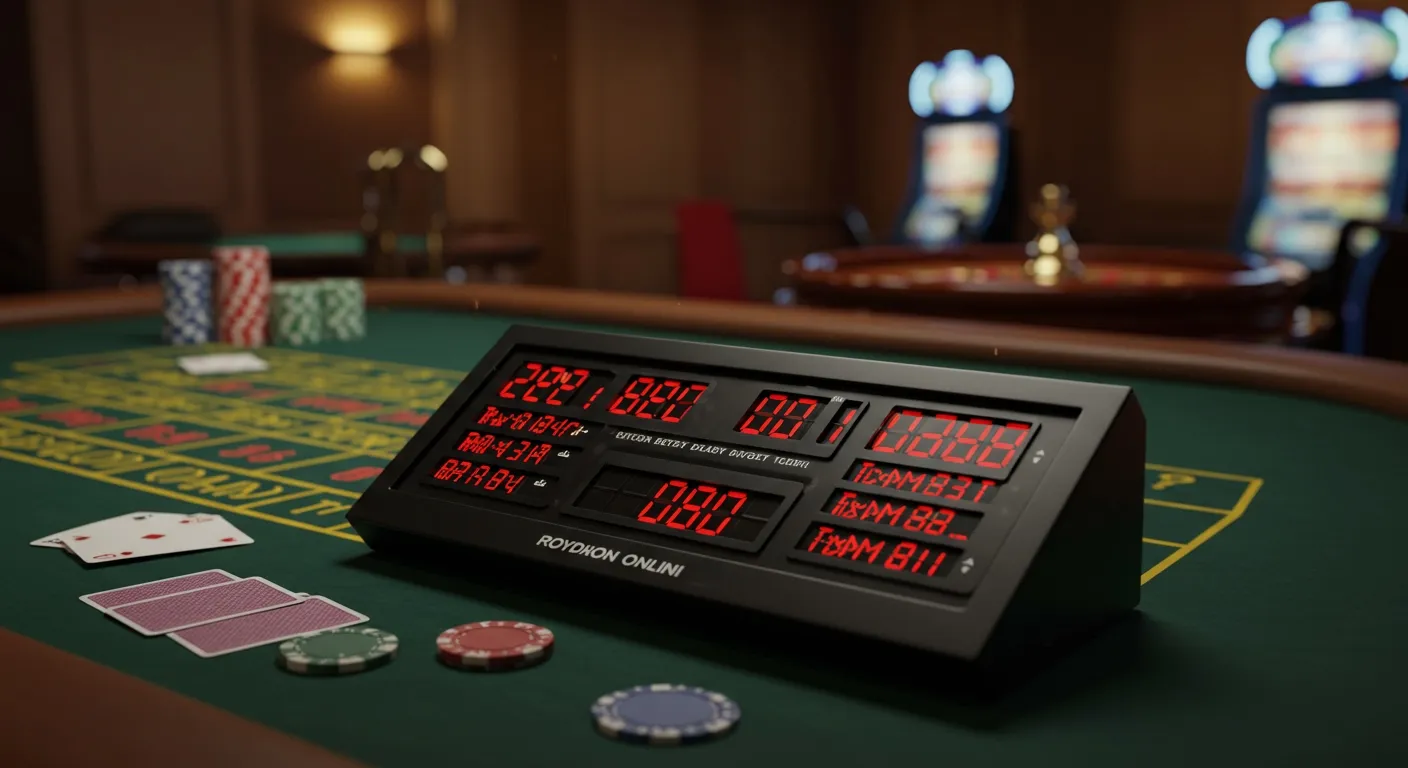If you’ve ever placed a bet online, you’ve probably seen numbers like 2/1, 5.00, or +300 flashing across your screen. They look simple enough, but the truth is — betting odds are far more than just random figures. They represent probability, value, and ultimately, how much you stand to win (or lose). Yet, understanding them isn’t just for professional punters; even casual bettors benefit from knowing how odds are calculated and what they truly mean.
Whether you’re a weekend sports fan or someone who occasionally plays on betting sites uk, understanding the mechanics behind online odds can completely change how you approach wagering. Once you decode how bookmakers think, you’ll see that betting isn’t just luck — it’s math, strategy, and perception all rolled into one.
What Are Betting Odds and Why Do They Matter?
At the most basic level, odds tell you two things: the likelihood of an outcome and the potential profit if your prediction is correct. Bookmakers set these odds based on detailed data, team performance, historical results, and market movements. But they also factor in their own margins to ensure they make a profit regardless of who wins.
For example, if a football match between Manchester United and Chelsea has odds of 2/1 for United to win, that means the bookmaker believes United has roughly a 33% chance of winning (1 divided by 3). But if thousands of bettors start placing large sums on United, the odds might shorten to 6/4 — not necessarily because the chances have changed, but because the bookie is balancing its risk.
That’s the secret of odds: they’re not purely about probability; they’re also a reflection of where the money is going.
The Three Main Formats of Odds
When you explore online bookmakers, you’ll notice that odds can appear in different formats depending on where the site operates. Understanding each format ensures you can read any market confidently, no matter the platform.
Fractional Odds (UK Format) – The most traditional style, popular among British bookmakers. For instance, 5/1 means you win £5 for every £1 staked, plus your stake back if you win.
Decimal Odds (European Format) – Easier to calculate for beginners. A 5.00 decimal odd means a £1 bet would return £5 total (including your stake).
American Odds (Moneyline) – Used mainly in the United States. Positive numbers (e.g., +300) show how much profit you make from a $100 bet, while negative numbers (e.g., -150) show how much you must stake to win $100.
Each format says the same thing differently, but they all boil down to the same core concept — probability versus payout.
How Bookmakers Calculate Odds
Behind the scenes, modern bookmakers use algorithms, predictive modeling, and sometimes even artificial intelligence to set odds. They feed historical data, team form, injuries, weather conditions, and even public sentiment into their systems. The resulting odds show the bookmaker’s view of the probability of each outcome, with a small margin added to guarantee a profit.
For example, in a tennis match where each player has an equal 50% chance of winning, the fair odds would be 2.00 (or even money). However, the bookmaker might set the odds at 1.91 for both sides, keeping a small margin of profit — known as the “overround.” This ensures that no matter who wins, the house remains profitable over time.
So, when you see odds slightly lower than what seems fair, remember that the bookmaker isn’t predicting — they’re managing risk.
Understanding Value in Betting
Once you grasp how odds are formed, the next step is recognizing value. A value bet occurs when you believe an outcome has a higher chance of occurring than the bookmaker’s odds suggest. It’s where smart betting begins.
Let’s say a horse has odds of 4/1 (20% implied probability), but after studying form, weather, and previous runs, you believe it actually has a 30% chance of winning. That’s a value bet — because the bookmaker is undervaluing the true probability. Over time, consistently identifying such opportunities separates successful bettors from casual punters.
It’s not about winning every bet — it’s about placing bets where the risk-to-reward ratio favors you statistically. Professionals call this “beating the closing line,” meaning you’ve found odds that offer better value than what the market will eventually settle at.
The Psychology Behind Odds Movements
Odds don’t just change because of performance or data — human behavior plays a massive role. Bookmakers constantly adjust odds based on where money is flowing. If thousands of people bet on one side, the odds shorten to balance the exposure. This dynamic market behavior means odds are as psychological as they are statistical.
A good example is during major events like the World Cup. When patriotic fans flood the market betting on their home nation, odds on that team winning often drop, not because the team got better overnight, but because public money distorted the market. Savvy bettors often exploit this by finding better value in the less popular outcomes.
Why Odds Differ Across Betting Sites
Not all bookmakers are created equal. You might notice that two different betting sites uk list slightly different odds for the same event. That’s because each bookmaker has its own data models, liability, and market strategy.
Some sites specialize in sharp, data-driven lines for professional bettors, while others focus on casual players who prefer convenience and bonuses. The best approach is to maintain accounts with multiple trusted bookmakers so you can compare odds and always secure the best possible price before placing your bet.
Think of it like shopping online — you wouldn’t buy something without comparing prices first, right? The same principle applies to betting.
Real-World Example: Decoding a Football Market
Let’s walk through a real example. Suppose you’re betting on a Premier League match where Arsenal hosts Liverpool. You see the following decimal odds:
- Arsenal: 2.60
- Draw: 3.40
- Liverpool: 2.50
If you convert those to implied probabilities (1 divided by odds), you get approximately:
- Arsenal: 38%
- Draw: 29%
- Liverpool: 40%
When you add them together, the total is 107%. That 7% excess is the bookmaker’s built-in margin — their profit cushion. Your job as a bettor is to find where those numbers might be slightly off. Maybe Arsenal’s home form and Liverpool’s fatigue suggest the real probability for Arsenal is closer to 45%. If that’s the case, betting on Arsenal at 2.60 offers genuine value.
Understanding that process transforms betting from guesswork into informed analysis.
Technology’s Role in Modern Betting
Today’s online betting landscape is powered by data science. Artificial intelligence now tracks live performance metrics, adjusts odds in real-time, and monitors player activity for fairness. This has made odds more dynamic and accurate but also more competitive.
Live betting (in-play betting) takes this even further. Odds can change multiple times per minute depending on how the game unfolds. A missed penalty, red card, or injury can instantly swing the market. For bettors, this provides endless opportunities — but only if you can keep up with the pace.
The integration of smart algorithms and machine learning means that online betting is no longer just about predicting outcomes; it’s about interpreting constantly shifting data. Understanding how and why odds change during live play is the mark of a modern, informed bettor.
Managing Expectations and Risk
Even with perfect understanding, betting remains a game of probabilities, not guarantees. No one wins all the time, and variance (the natural ups and downs) is part of the experience. Professional bettors often emphasize bankroll management — staking a consistent percentage of your balance per wager to weather inevitable losing streaks.
Equally important is emotional discipline. Chasing losses or betting impulsively because of a “gut feeling” almost always leads to long-term failure. Treating betting as entertainment with strategic intent, rather than a get-rich scheme, keeps you grounded and in control.
The Takeaway: Knowledge Is Your Real Edge
Understanding how betting odds work online is more than a technical skill — it’s a mindset shift. Once you see odds as reflections of both probability and public emotion, you stop betting blindly and start thinking like a bookmaker. That’s when the game truly becomes interesting.
The next time you log in to a sportsbook or scroll through odds on your favorite match, take a moment to analyze the numbers. Ask yourself what they really represent — and whether they align with your own assessment of the event. That simple habit can turn casual wagering into an informed, rewarding experience.








